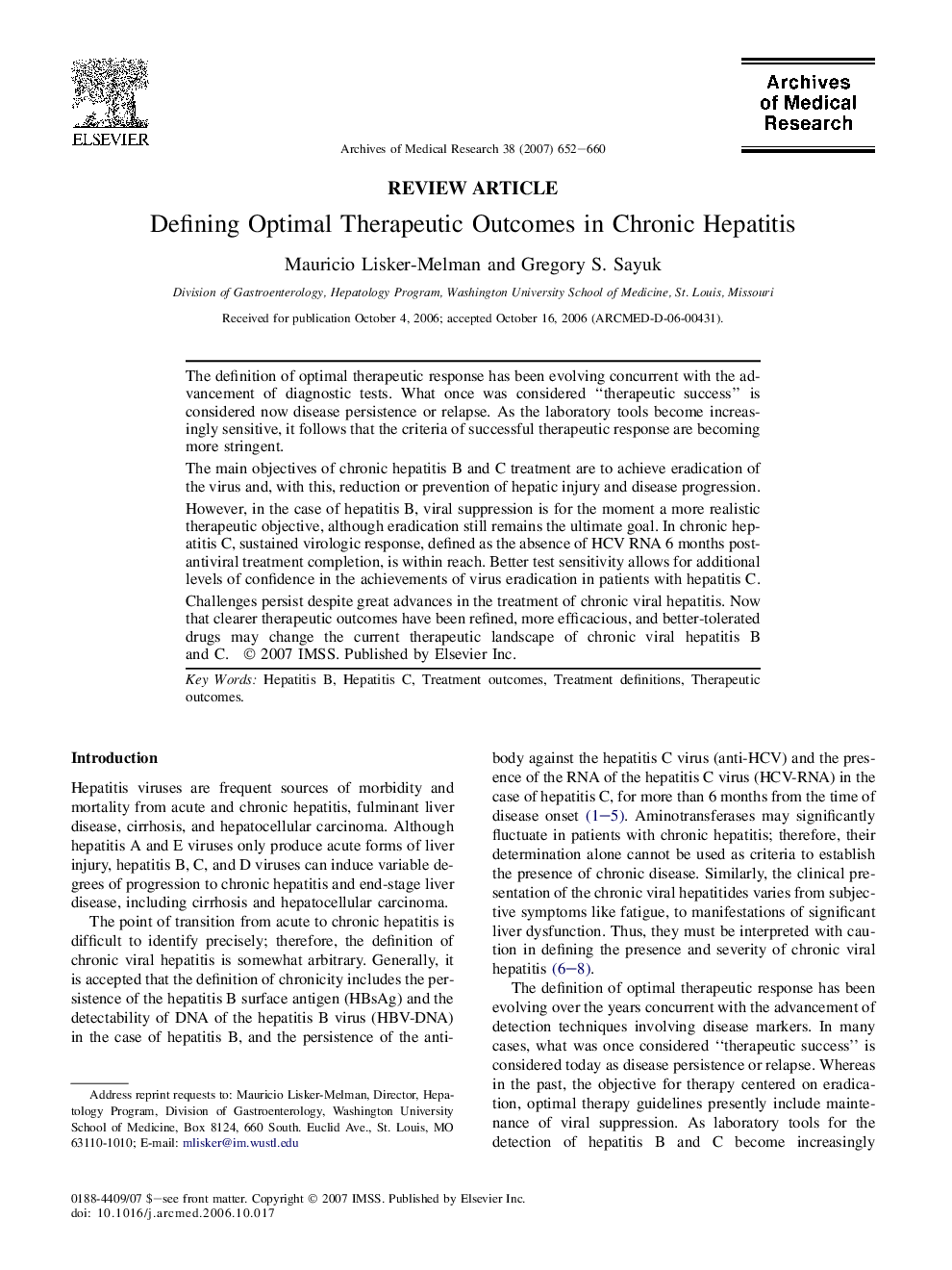| کد مقاله | کد نشریه | سال انتشار | مقاله انگلیسی | نسخه تمام متن |
|---|---|---|---|---|
| 3447279 | 1595525 | 2007 | 9 صفحه PDF | دانلود رایگان |

The definition of optimal therapeutic response has been evolving concurrent with the advancement of diagnostic tests. What once was considered “therapeutic success” is considered now disease persistence or relapse. As the laboratory tools become increasingly sensitive, it follows that the criteria of successful therapeutic response are becoming more stringent.The main objectives of chronic hepatitis B and C treatment are to achieve eradication of the virus and, with this, reduction or prevention of hepatic injury and disease progression.However, in the case of hepatitis B, viral suppression is for the moment a more realistic therapeutic objective, although eradication still remains the ultimate goal. In chronic hepatitis C, sustained virologic response, defined as the absence of HCV RNA 6 months post-antiviral treatment completion, is within reach. Better test sensitivity allows for additional levels of confidence in the achievements of virus eradication in patients with hepatitis C.Challenges persist despite great advances in the treatment of chronic viral hepatitis. Now that clearer therapeutic outcomes have been refined, more efficacious, and better-tolerated drugs may change the current therapeutic landscape of chronic viral hepatitis B and C.
Journal: Archives of Medical Research - Volume 38, Issue 6, August 2007, Pages 652–660